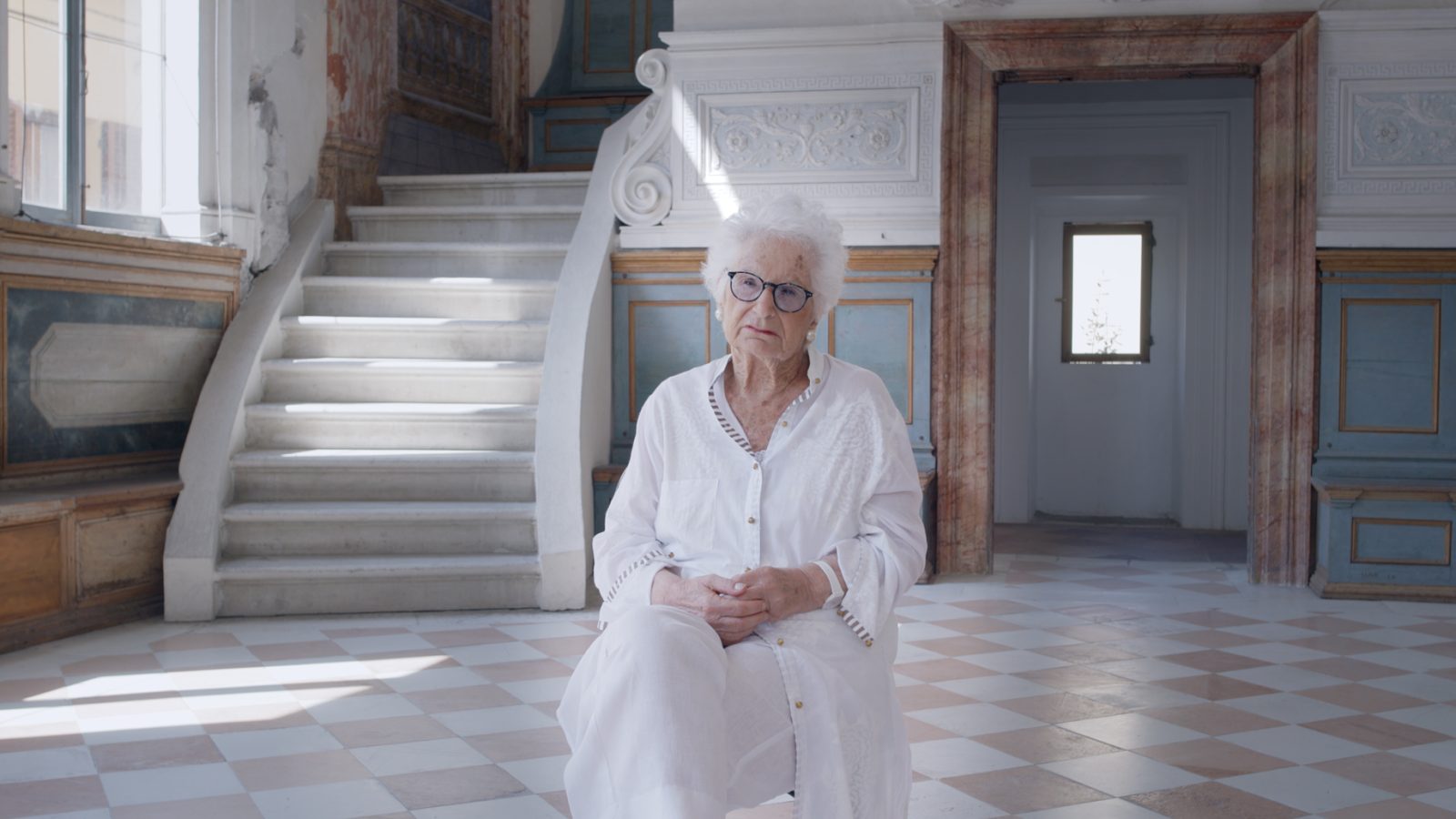CINEMA – “Liliana” by Gabbai, the woman before the senator

The goal was to strip away the rhetoric surrounding Liliana Segre. To move beyond the “very Italian” attempt to turn her into a symbol. And to let her speak today, offering the public a faithful portrait of her story and worldview. Liliana is the title of a documentary by Milanese film director Ruggero Gabbai, dedicated to the Italian life senator and Holocaust survivor, which was presented at the Rome Film Festival on October 20.
“It’s a biographical account, a family story, but it’s also the reconstruction of her evolution into a public figure known throughout the country,” Gabbai told Pagine Ebraiche. “One of my aims was to remove much of the symbolism built around Liliana over time. In Italy, we have this tendency to turn certain figures, especially women, into icons. I tried to return to the essence: her words and her story. In a way, it’s a very Jewish perspective.”
The project draws inspiration from Gabbai’s 1996 film Memoria, made with historians Marcello Pezzetti and Liliana Segre. In that film, Segre was one of 93 Italian Jews who survived the Holocaust and shared her testimony. “But she wasn’t the central figure. She was interviewed by Picciotto, and much of her account from then remains unpublished.” These archival materials, preserved by the CDEC Foundation, were used in Gabbai’s Liliana, which was produced by Forma International in collaboration with Rai Cinema. “Segre’s way of telling her story hasn’t changed much since then. She still has an extraordinary command of language, a unique ability to choose words and deliver them with great clarity. Listening to her is like reading a book; she’s precise in describing her life, her places, the persecution, and Auschwitz. It has the effect of a Primo Levi or Elie Wiesel book: they tell you about the world and the Holocaust without rhetoric, stripping away anything unnecessary.”
A free and disenchanted voice
In comparing Segre’s testimony from 30 years ago to today, Gabbai notes an evolution. “You can sense the journey she has taken as a woman and as a witness. There is an awareness of having become a public figure, while maintaining her freedom and curiosity for the little things. As she says about herself with irony in the documentary, she’s ‘a barnyard hen, not a golden eagle.’” Along with this awareness, historian Marcello Pezzetti observes, comes a greater “disenchantment with society, the world, and how she views Auschwitz and memory. It is a disillusionment that almost sets her apart from everything and makes her even more of a reference point. It also annoys those who try to trivialize her words, even on current issues like Israel. People contest and criticize her for her clear-sightedness in addressing problems head-on,” Pezzetti adds. This perspective, the historian notes, “is something Gabbai managed to capture very well.”
The relationship built over time between the director and Segre was fundamental in the making of the film. “She trusted me and was incredibly generous. We had many conversations during filming and always tried to make her feel comfortable. Together, we decided to start filming in Pesaro in September 2023.” This city, located in the Marche region, is where Segre’s maternal grandparents and her husband, Alfredo Belli Paci, came from. “She returns there every summer, and it felt right to start from the place where she found renewal after Auschwitz.” Part of the story was filmed on the beach of Pesaro, another part in the city’s synagogue, which has long since lost its religious function. “The synagogue partly reflects Segre’s relationship with her Jewish identity, an identity that has evolved over time and strengthened after her decision to publicly share her story, encouraged by her friend Goti Herskovits Bauer, also a survivor of Auschwitz.”
Shining a light on the second generation
In the documentary, various figures such as former PM Mario Monti, journalist and writer Ferruccio de Bortoli, the Carabinieri officers who protect her, Italian host of successful shows Fabio Fazio and actress Geppi Cucciari contribute their personal portrayals of Segre. “We needed them to tell the story of how her public image has evolved.” However, for Gabbai, one of the most important elements is the relationship with her children – Alberto, Luciano, and Federica – who for a long time were unaware of their mother’s past as a survivor. “I believe this is the first time in Italy that a film sheds light on the relationship between the second generation and the trauma of their parents, and how this pain is transmitted.”
Additionally, for the first time, Gabbai notes, “Federica speaks in front of the camera. She shared how, at 13 – the same age Liliana was deported to Auschwitz – her mother read her pages from her diaries. Federica speaks eloquently: she explains that, for her mother, this was undoubtedly therapeutic, while for her it was deeply painful. It is not an accusation, just a fact. And she emphasizes how, since then, she feels she has taken up the baton.”
It was an emotional and surprising moment, says the director. “This documentary is very much a family story. It’s the story of Liliana as a mother and grandmother, not just as a witness.” For Pezzetti, “The film Liliana captures Segre’s overall message: an intelligent woman who, in life, has overcome everything while holding on firmly to her freedom and her loved ones.”
Daniel Reichel
